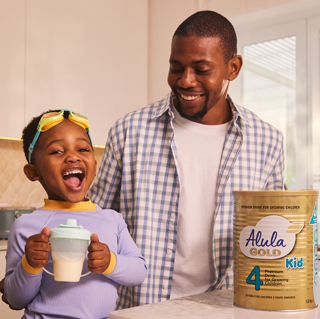Allergic reactions are becoming more prevalent around the world, especially in more developed countries. This heightened sensitivity may be due to increased exposure to harmful environmental factors, such as air pollution and cigarette smoke, as well as cleaner living environments with fewer micro-organisms and bacterial exposure
We often forget that not all bacteria are harmful; some micro-organisms are part of our natural environment and necessary to build immunity. These factors can cause newborns and young children to develop a more sensitive immune system. Approximately 10- 20% of children in South Africa have asthma, 30-40% have allergic rhinitis, and 15-20% of children have atopic dermatitis, which is the most common type of eczema.
Eczema is a chronic condition that affects the skin, which is the primary barrier responsible for protecting your body from allergens, environmental irritants, bacteria and viruses. Damaged skin also allows water to escape the body, leaving the skin dry, irritated and vulnerable to infection.
When eczema appears, the skin will become red, itchy and inflamed. Eczema is more common in infancy and early childhood. Symptoms usually appear in babies around 3-4 months of age, especially around the face, on their forehead, chin, cheeks and scalp and the upper areas of their arms and legs. In older children, it is most commonly seen in the inner creases of skin around the elbows, wrists, hands and knees and ankles. Fortunately, most children outgrow eczema, or the symptoms become more manageable with time. There is no exact cause of eczema and symptoms may be acute (lasting less than six weeks), chronic (lasting more than six weeks), or episodic and recurrent (lasting for short periods of months to years).
A family history of asthma, hay fever and eczema or atopic dermatitis and environmental exposure to excessive drooling, irritants (strong perfumes, harsh soaps or fabric softeners) and woven or coarse material, dry skin, sweat and allergens (pet hair and skin, pollen and dust) may lead to the development of eczema in children. Unfortunately, the symptoms of eczema not only affect a child’s skin, but the damaged skin can be painful or become inflamed. It affects your child’s sleep and the ability to play with their peers due to a common misconception that eczema is a contagious skin disease.
Food allergies and eczema
It is essential to understand the relationship between food allergies and eczema. A food allergy will not cause eczema in all children, but a child with eczema may have an increased risk of developing a food allergy. When food allergens or proteins from food sources such as peanuts, milk and eggs, enter the skin through external contact rather than being ingested, the body sees this allergen as an invader and reacts against it. This may cause an allergic reaction when that food is eaten. If you have a history of allergies, or your child starts showing signs of an allergic reaction, it is best to be cautious when introducing solids containing allergens. The nine most common allergens are peanuts, cow’s milk, eggs, wheat, shellfish, soy, fish, tree nuts and sulphites. However, avoiding these foods is not recommended. Excluding these foods from your child’s diet may cause your child to become a picky eater, or nervous when eating in social settings.
Children with numerous dietary exclusions have an increased risk of developing nutrient deficiencies that may impact their health, growth and development. If you are pregnant, start allergy prevention strategies early, throughout breastfeeding and by following an age-appropriate introduction of solids to your baby.
- During pregnancy follow a balanced diet without exclusions by including fruit, vegetables, nuts, meat, fish and dairy.
- Breastfeed without dietary restrictions for as long as possible.
- Only exclude foods from your diet if you have a known allergy or intolerance.
- When introducing solids to your baby, start with single food items first and do not delay exposure to allergens.
- Avoid infant exposure to cigarette smoke, vape vapour, harsh chemicals and irritants.
- If your baby has severe eczema, allergy testing may be required and performed by a specialist.
Skin protection strategies
If your child’s eczema is difficult to control, skin protection strategies are essential. By protecting the skin, the body’s first line of defence is strengthened and improves the immune system from being exposed to allergens and environmental contaminants. Some skin protection strategies include:
- Making bath time an enjoyable experience by using lukewarm water that soothes pain and skin irritations and helps to hydrate the skin. Make sure you use a soft washcloth or your hands to prevent damaging the skin, and only use a mild soap in the last minutes of bath time to limit exposure to the soap. There are a wide variety of natural products or fragrant-less soaps for sensitive skin that may help to prevent symptoms. Experts recommend patting your baby dry before applying a cream or ointment with a higher oil content to help seal in moisture and reduce skin irritation.
- Follow your doctor or paediatrician’s treatment protocol, even when results take time. It is important to remember that treatment for any condition will not necessarily be the same in all individuals. It is best to consult your medical specialist before adjusting the treatment plan, especially in infants and young children who cannot verbally. communicate their symptoms.
- Help your child with prevention strategies by applying moisturiser when you see them scratching and avoiding environmental toxins or triggers such as smoke, dust, mould, harsh chemicals, soap and detergents, and definite dietary triggers.
- Personal hygiene is essential for the entire household. Ensure nails are clean and neat, choose clothing that does not irritate the skin and remove tags where possible, avoid tight fitting clothes and teach your child about the importance of basic hygiene from a young age. Eczema is a manageable condition, and although symptoms may be challenging to treat on occasions, it can become part of your daily routine. Ensure that all caretakers, teachers, coaches and family members are aware of the treatment protocols and prevention strategies to help your child cope with their condition in the best way possible.
By Lindi Struwig















Leave a Reply